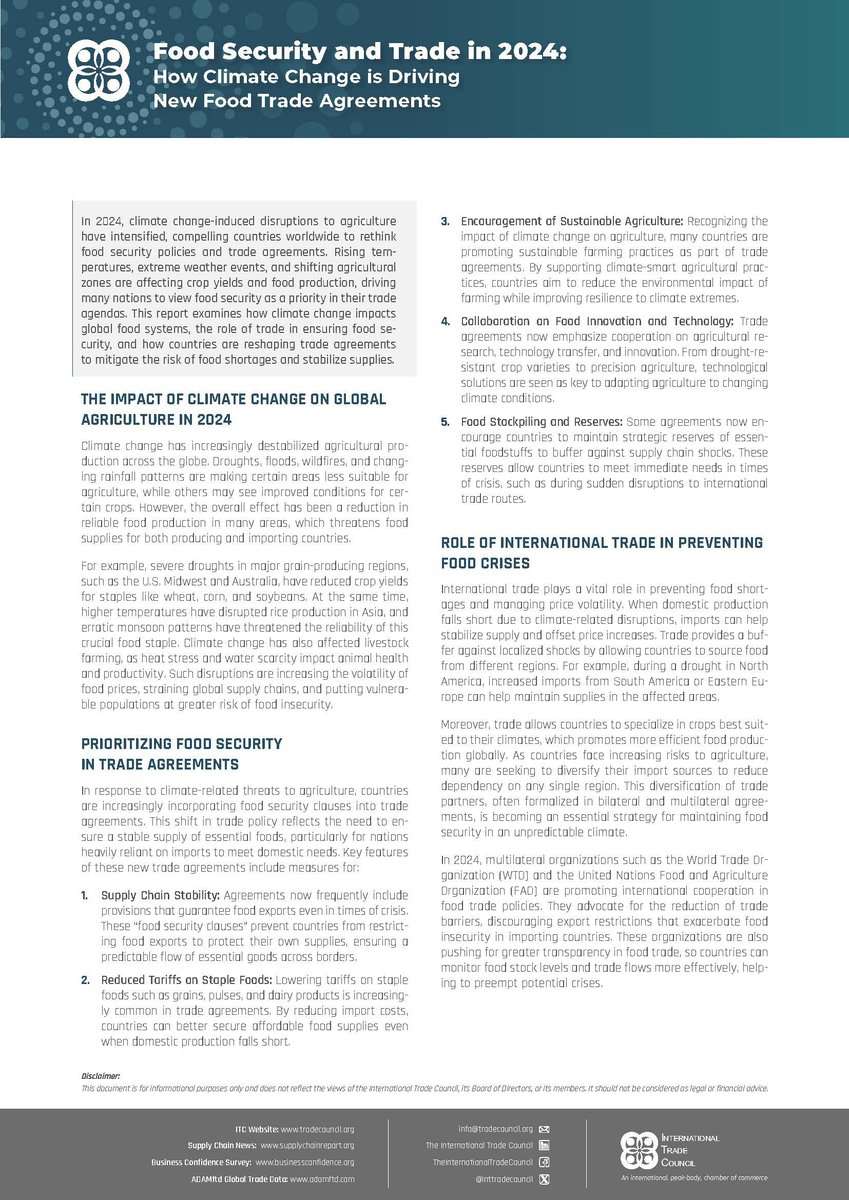About the Book
This white paper examines how climate change-induced disruptions to agriculture have reshaped global trade priorities in 2024, highlighting the urgency of food security in international agreements. Extreme weather events, shifting agricultural zones, and declining crop yields in major food-producing regions like the U.S. Midwest and Australia have underscored the vulnerability of global food systems. Countries are increasingly embedding food security clauses into trade agreements to stabilize supply chains, reduce tariffs on essential food imports, and promote sustainable agriculture.
The report emphasizes the role of trade in mitigating food crises, encouraging diversification of supply chains, and fostering international cooperation. Examples include the U.S.-ASEAN Agricultural Resilience Pact and the EU-African Food Security Partnership, which integrate technology, funding, and policy innovation to address climate challenges. Recommendations for businesses range from adopting climate-smart practices to engaging in regional partnerships, while policymakers are urged to lower trade barriers, invest in sustainable agriculture, and maintain strategic food reserves. This comprehensive analysis underscores the critical intersection of climate change, trade, and food security in the global economy.

